Swiss voters reject ban on animal testing
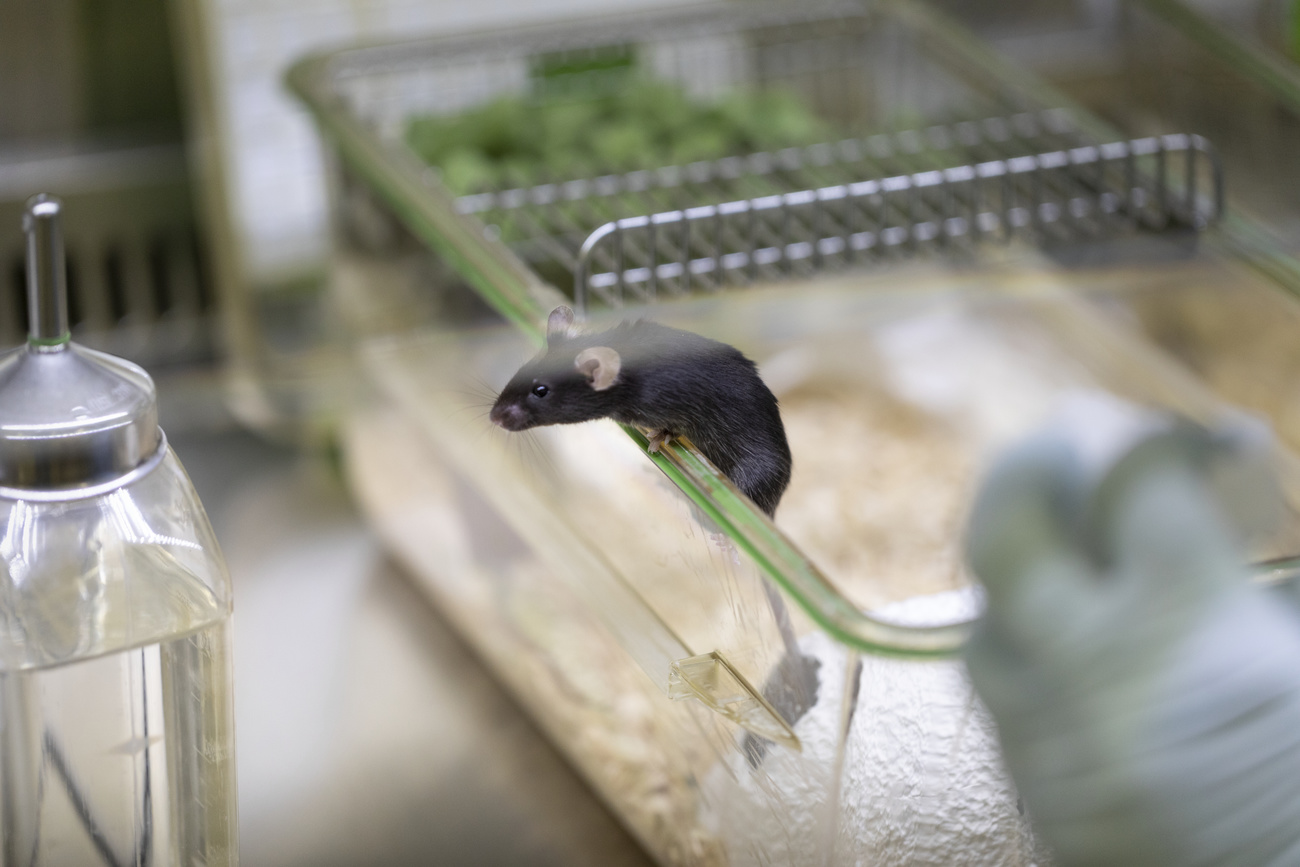
Voters have clearly rejected a complete ban on experiments on living creatures in Switzerland. It is the fourth time the Swiss have thrown out this issue.
An early projection published by the GfS institute showed that 79% of voters had said “No” on Sunday to a people’s initiative attempting to ban all experimentation on animals and humans, and to stop the import of any new products developed using such testing.
Supporters had wanted to halt tests, saying they are unethical and unnecessary, but ran into opposition from the country’s powerful pharmaceuticals lobby, which warned of the economic damage such a ban could cause.
The committee that fought the initiative was delighted with Sunday’s resounding victory.
“The Swiss people realised that a ban would have threatened the health of animals and humans,” Lucerne senator Andrea Gmür told the Keystone-SDA News Agency.
The result was slightly higher than expected, said Swiss People’s Party parliamentarian Martin Haab.
“This shows that the people were aware of the consequences for their health if the initiative had been accepted,” he said.
Simone de Montmollin, a Radical-Liberal parliamentarian and member of the “No” committee, agreed that voters had been sensitive to the arguments that a ban on animal testing would have harmed the research and health sectors in Switzerland.
Swiss legislation is very strict and continues to evolve,” she said.
During the campaign, public support for the initiative was very limited, and the initiative committee was unable to win the support of a single major political party or organisation. It was considered too extreme by parliament, which feared it would hamper medical and scientific research in Switzerland. It argued that current legislation, which only allows animal experiments if no alternative methods are available, is strict enough.
Other opponents of the initiative included the umbrella organisation for higher education institutions, swissuniversities, the National Research Council of the Swiss National Science Foundation and the Swiss Society for the Protection of Animals.
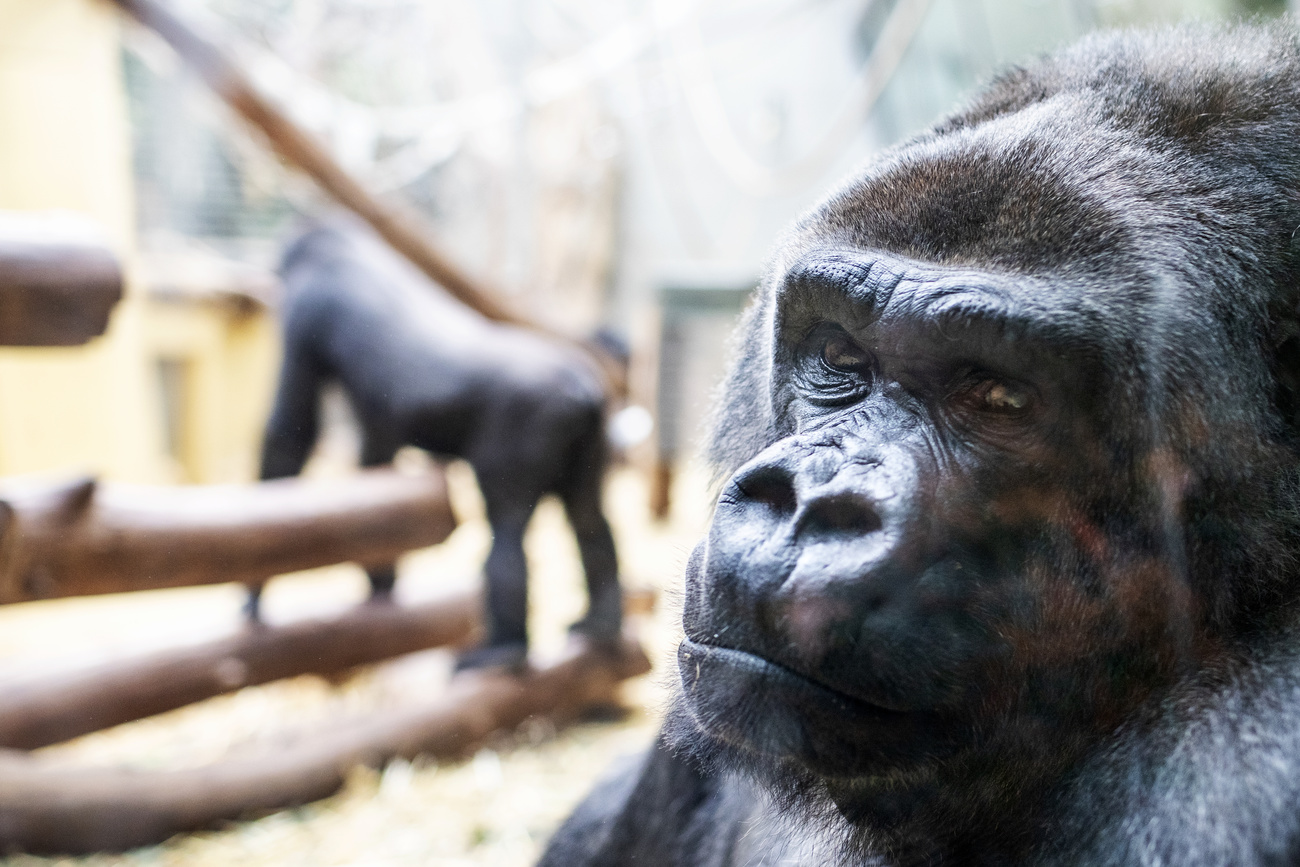
More
Voters decline to give limited rights to non-human primates
Disappointment
Campaigners for the initiative had argued that in addition to the suffering of animals, animal experiments often lead to dead ends and that there are proven alternatives and better ways to gain knowledge.
Renato Werndli, co-chairman of the committee that launched the initiative, said he was disappointed with Sunday’s result.
“It’s a shame. Switzerland could have been the first country to ban animal testing,” he told Swiss public radio, RTS.
“I don’t understand why people didn’t have more empathy for animals that continue to suffer,” he added. “We tried to convince people with scientific facts but they didn’t believe us.”
More
This was the fourth time that the Swiss have rejected people’s initiatives calling for animal testing bans; they had previously done so in 1985, 1992 and 1993.
But the campaigners say they will not give up.
“Animals cannot defend themselves – we cannot let them down,” said Werndli. He plans to revive the issue in a few years’ time. “We will meet tomorrow to plan the next initiative.”
Biology research
Approximately 556,000 animals were used for experimental purposes in Switzerland last year, according to the Federal Food Safety and Veterinary Office. The vast majority were mice (346,000), birds (66,000) and rats (52,000). The total figure represented a decrease of 18% compared with 2015, when the downhill trend started.
In Switzerland, most animal experiments are carried out by businesses and in universities. In 2020, over 60% of these procedures were performed during basic biology research, such as testing of scientific hypotheses or harvesting of cells and organs.
The federal legislation on protection of animalsExternal link, which became law in 2008, is one of the strictest and most comprehensive in the world. An authorisation is required for every laboratory experiment, and for any confinement of animals. Researchers have to prove that benefits to society outweigh the suffering inflicted.
Health Minister Alain Berset told a press conference in Bern that Switzerland’s animal testing regime remained “among the strictest in the world” and that the welfare of animals was taken into account.
Animal testing is only used when no other choices are possible. A total ban would have blocked access to new treatments, Berset added.
Ban on tobacco advertising 56.6% Yes 43.4%No
State funding for private media 45.4% Yes 54.6% No
Ban on animal testing 20.9% Yes 79.1% No
Stamp duty reform 37.3% Yes 62.7% No
Turnout: 44.2.%
About 5.3 million Swiss citizens, including registered expat Swiss living around the globe, were eligible to take part.
The votes were the first in series of up to four nationwide ballots this year.
A series of votes at cantonal and local levels were also scheduled on February 13.

In compliance with the JTI standards
More: SWI swissinfo.ch certified by the Journalism Trust Initiative














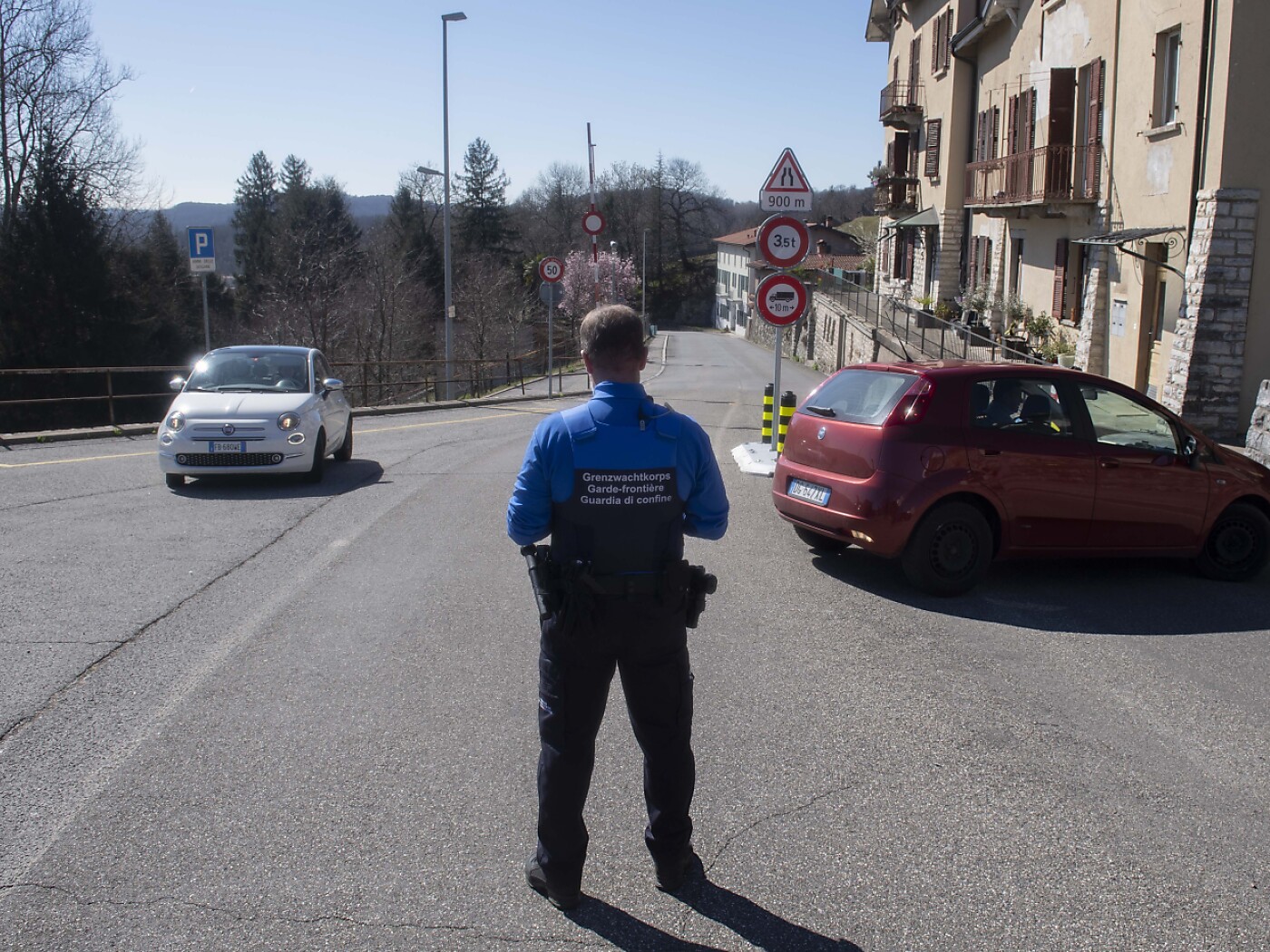
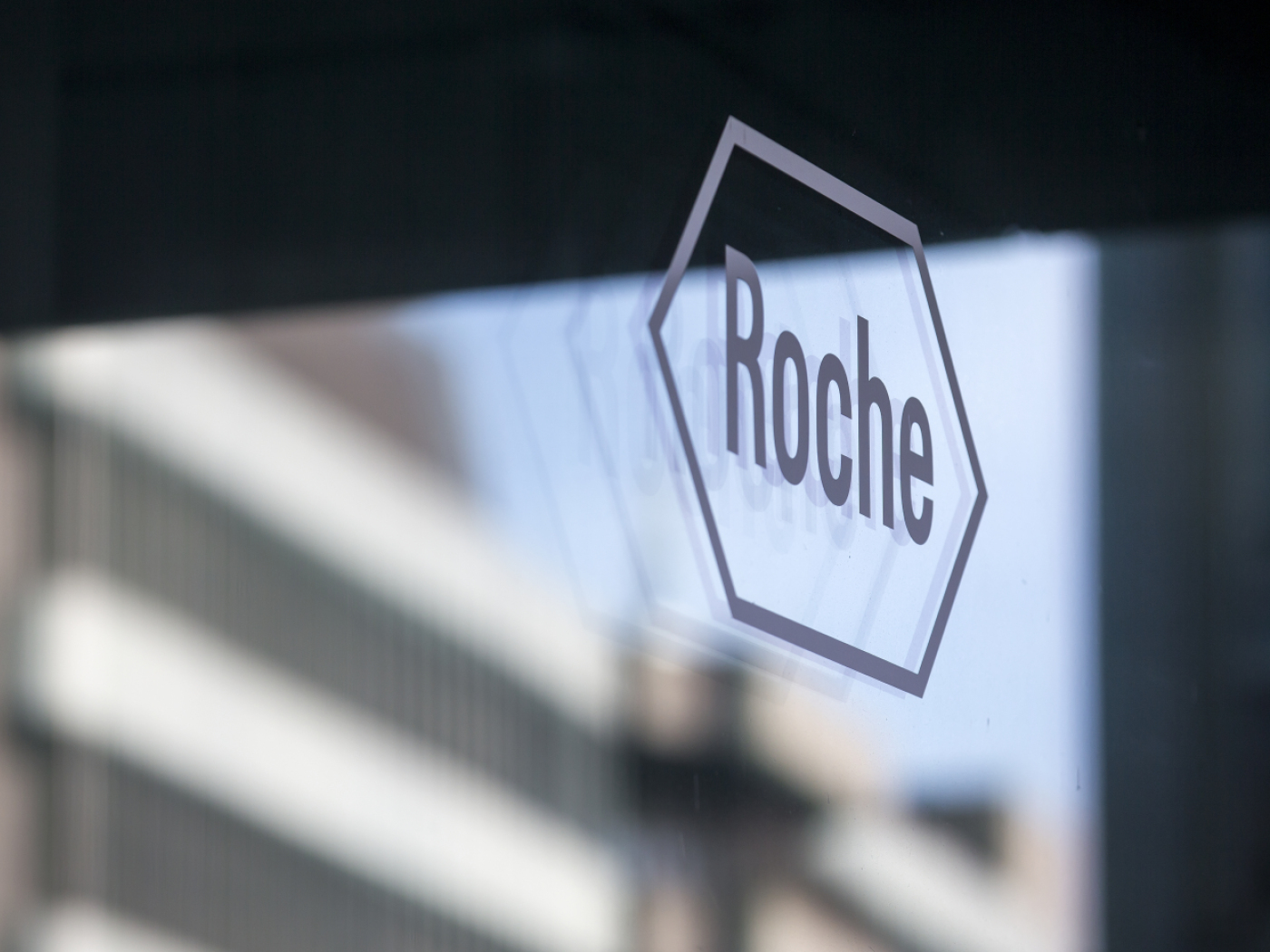




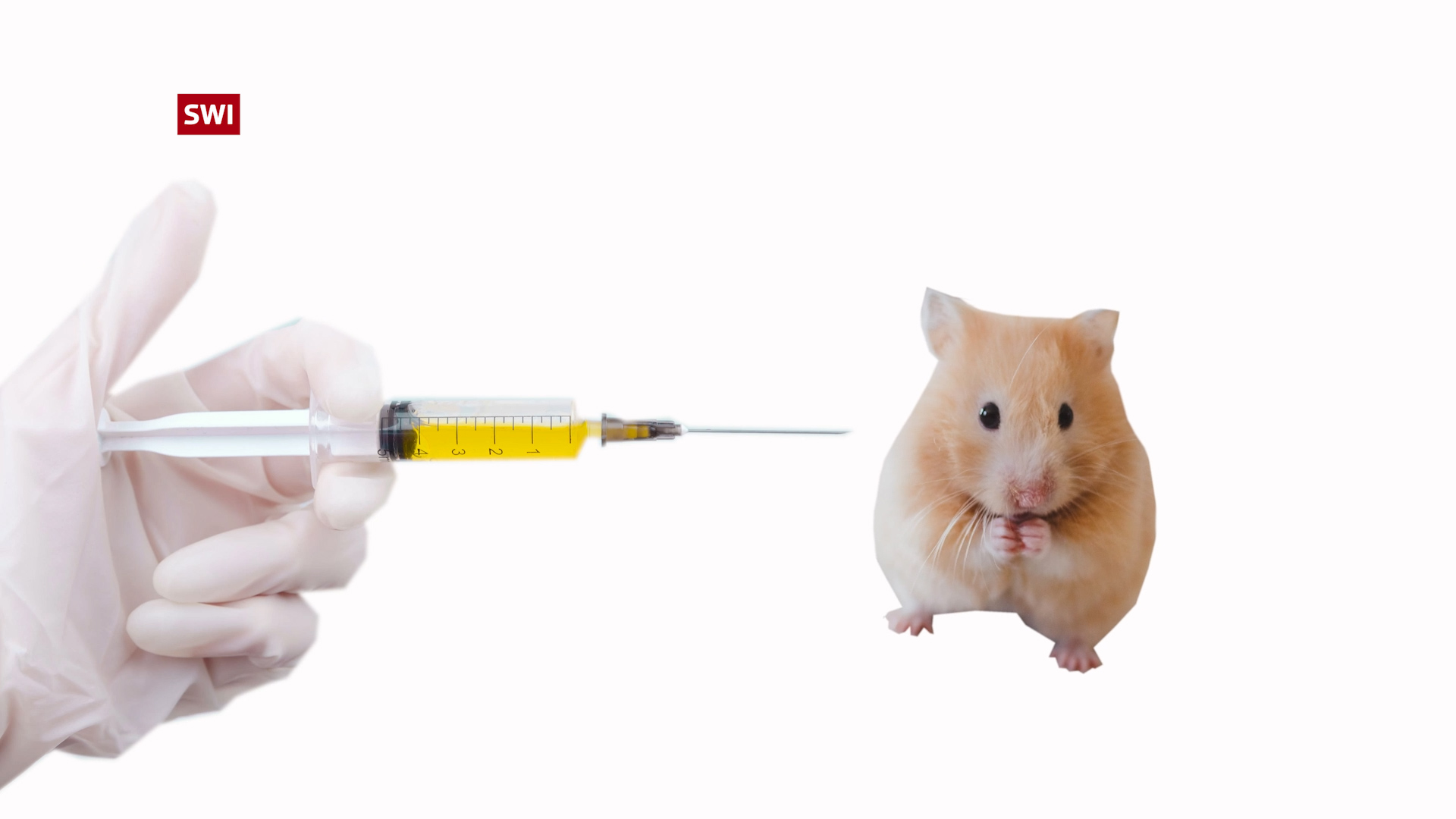

You can find an overview of ongoing debates with our journalists here . Please join us!
If you want to start a conversation about a topic raised in this article or want to report factual errors, email us at english@swissinfo.ch.